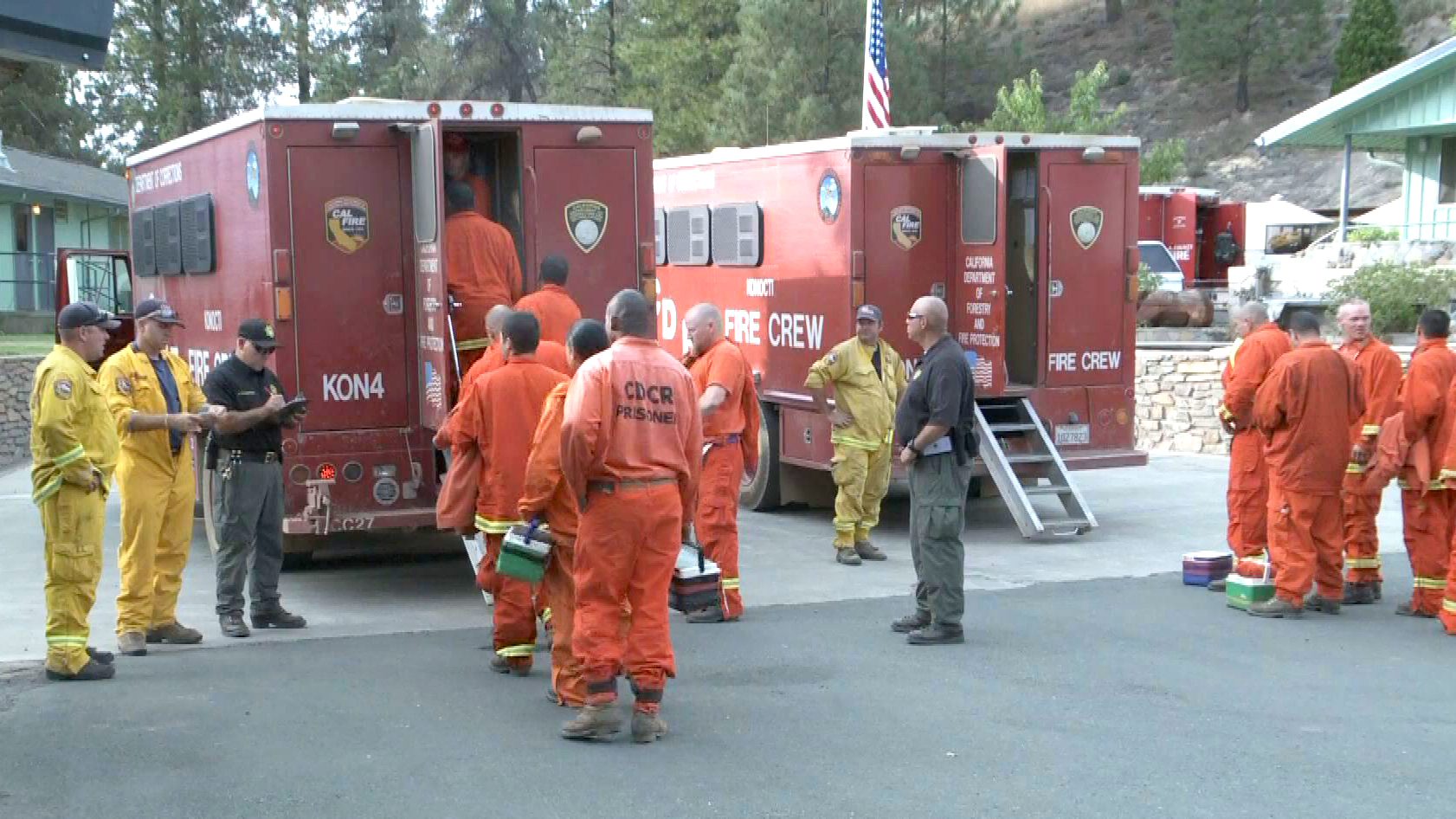LAKE COUNTY – Wildfires continue to burn across the state of California and that means firefighters are working around the clock. At the Rocky Fire, hundreds of California Department of Corrections and Rehabilitation inmates are also on the front lines battling the blaze.
Some of those inmate firefighters are from Konocti Camp, which houses 110 male inmates. The low level offenders live there year round. About 85 percent of them fight fires, while 15 percent do other jobs around the camp, including: cooking, welding, automotive work and even waste water treatment, according to CDCR Camp Commander Jeff Auzenne.
Inmate Shane Thompson said he didn't know much about fighting flames until coming to the camp.
"Everyone goes out, grabs their tool, and hook line order, and they go up the mountain, usually, and fight the fire, cut line," Thompson said.
The inmates usually travel in a crew of 12 to 16 inmates with a Cal Fire leader. Two crews usually travel together to form a strike team.
Once they return from battling the flames, many have to sharpen tools and get organized so they can be ready for the next call.
At their home base, the inmates have everything from sleeping areas, restrooms, recreational areas, a gym and laundry area. Many feel the freedom of the camp is helping them to transition into a more normal life.
"Being incarcerated behind the walls it's a different setting and coming to camp you have a, it's a different atmosphere," inmate Antonio Reed explained.
On Thursday, the kitchen crew, which can range from 15 to 30 inmates at a time, served up 1,400 breakfast meals; it was taco night for the 800 eating dinner. Those meal numbers are high because they feed everyone working at camp and others helping to respond to the nearby Rocky Fire.
There's even more specialized work being done there. Damone Cuington used to work as clerk at the camp, working on things like payroll; he is now learning about waste water treatment.
"When I initially parole, waste water is something that I want to get into, but counselling long term is actually what I want to do," Cuington said.
He's from Stockton and started out in a maximum security prison 18 years ago. He said he's been at the camp for three years. Now, he's about a month away from parole and feels like his experience at camp is helping him get ready to leave.
"Out here, you're more able to be yourself, you know, you're more able to mentally interact with people and be able to communicate with people on a human to human basis," Cuington explained.
Many of the inmates fighting fires will work for 24 hours in the field and then get 24 hours of rest. When it's not fire season, inmates will work on service projects, like cleaning up school grounds and maintenance.
Inmates get paid for their work at the camp. The initial pay is $1.45 a day to a maximum payment of $3.90 a day according to Auzenne. If they are fighting fires, they get an additional dollar per hour.
The Department of Corrections and Rehabilitation and Cal Fire partner to keep the Konocti Camp running. It initially opened 1963.


